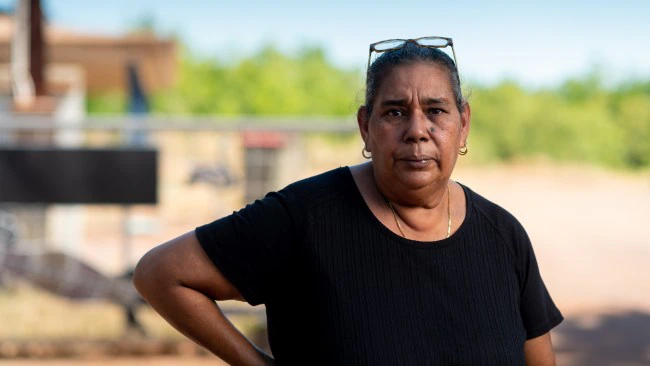A senior Indigenous leader from Darwin says most Aboriginal people from the Northern Territory know little about the Voice to Parliament and she doubts they will vote to support it.
Gwalwa Dariniki Association chair Helen Secretary rejected claims by Prime Minister Anthony Albanese and others that more than 80 per cent of Indigenous Australians supported the Voice.
Helen has expressed skepticism about the practicality of establishing a national Voice to represent hundreds of different clan groups. According to her, no single tribe can effectively speak on behalf of another, making it impossible for a national Voice to truly represent the diverse perspectives and needs of indigenous communities.
In advocating for an alternative approach, the leader highlighted the desire of the Larrakia people for a Treaty that would enable them to negotiate directly with the Federal Government and the Commonwealth. By securing a Treaty, they would have the autonomy to make decisions concerning their own land and aspirations for economic development. Importantly, she emphasized that their aim is not financial compensation, as her children work diligently for their own income without relying on their indigenous status for benefits.
For the leader, a Treaty would provide her people with greater control over their own affairs on their own land. The journey towards achieving this began as far back as 1972 with the drafting of the Larrakia petition, and in 1979, it gained recognition through a crown lease granted by the Northern Territory Chief Minister to the Gwalwa Dariniki Association for communities in Darwin.
Rather than a national Voice, the leader suggested that the Federal Government engage directly with different tribes residing on their respective lands to better understand their individual dreams for economic development. She stressed the importance of collaboration between the government and indigenous communities, leading to the granting of individual treaties. This approach acknowledges the uniqueness and diversity of each tribe, ensuring that their voices are accurately represented in the decision-making process.
The leader expressed concern that the ongoing debate on the Voice is causing division within the nation. Instead, she called for Australia to embrace its proud multicultural identity and foster unity among its citizens. By recognizing and respecting the autonomy of indigenous communities, Australia can celebrate its diversity while working towards a more inclusive and equitable society.


